Posts published in 2017
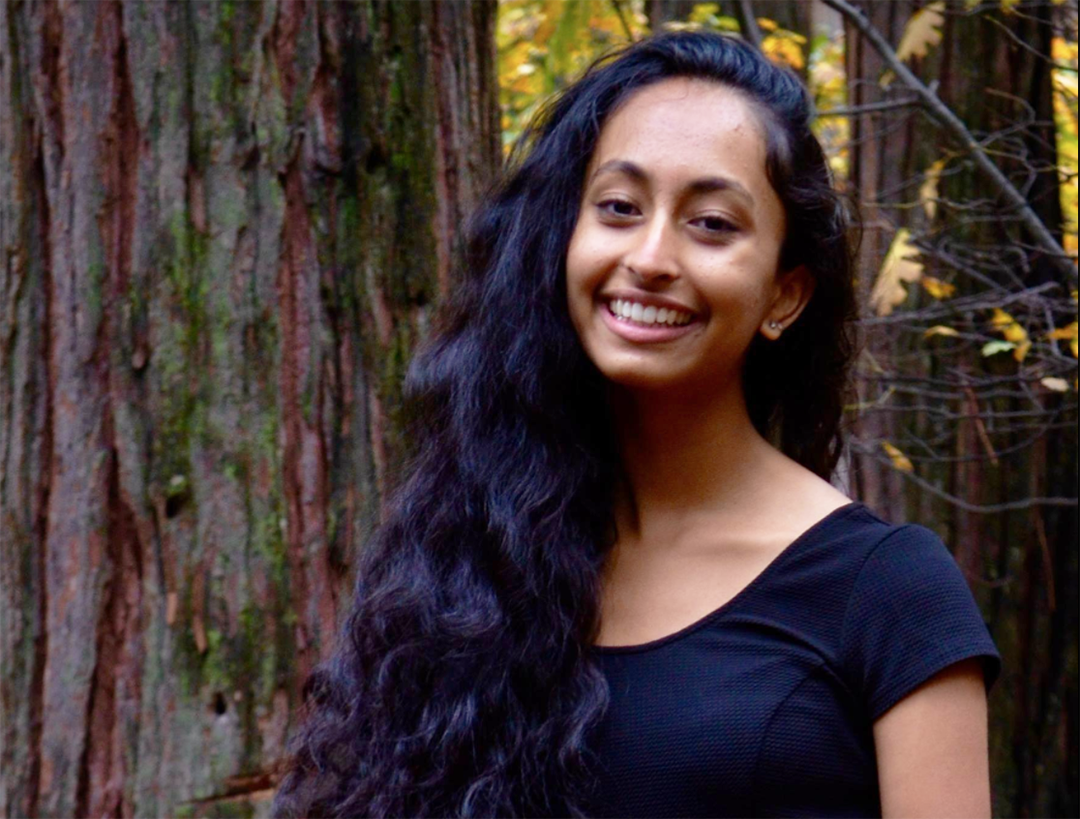
Technology aiding advocacy
By Mayuka Sarukkai, ’19 (Symbolic Systems)
The landlord won’t remove lead paint from the walls – which means health problems for the kids, which means frequent hospital visits, which means no time to work, which means we can’t pay rent, which means we’re being evicted. This is the story recounted by one woman over a housing hotline, but the vicious cycle of landlord abuse and displacement is a narrative shared by countless tenants who are facing the overwhelming reality of gentrification in New York City.
My summer fellowship at JustFix.nyc, a Brooklyn-based nonprofit creating technological tools to fight for housing justice, was a deep dive into this tangled world of housing in NYC. Over the course of nine weeks, I worked on building – from outreach to user research to design to deployment – a new online referral directory designed to provide targeted referrals to best-match legal service providers and community advocates for these tenants facing housing crises. This summer was the first time I truly felt I had access to an arsenal of tools and experiences to bridge real human stories and intentional product development, and to understand what it really means to work at the intersection of humans and computation to create a positive community impact.
Interested in spending a summer doing public service? Find out more about Cardinal Quarter.
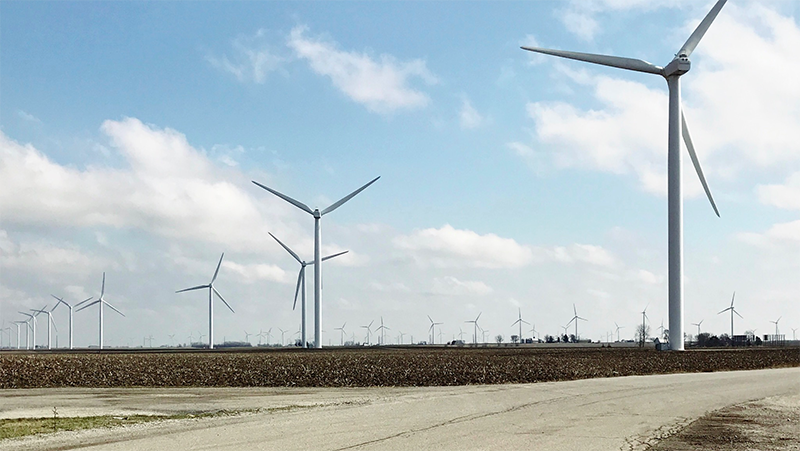
No small task
 By Noah Garcia, M.A. ’15 (Public Policy)
By Noah Garcia, M.A. ’15 (Public Policy)
I hopped off a cozy rush hour “L” train and walked into the office at the city’s Civic Opera Building for the first time. Any hazy ideas I had about the work quickly came into sharp focus: Drafting written comments and reports. Liaising with other environmental organizations and utilities. And reading way too much email.
When I accepted my fellowship with the Natural Resources Defense Council (NRDC) in Chicago, I was excited and anxious about the fellowship’s broad clean energy scope. I felt that the classes I had taken in college had prepared me, at a high level, for work that lay ahead. But so much learning took place on the job.
Moving the needle on clean energy development in the Midwest is no small task. I feel proud to have worked on NRDC teams that drove bold renewable energy and energy efficiency legislation in Illinois. I feel proud to have helped spur electric vehicle adoption in Ohio through multi-party agreements to fund critical infrastructure. And I am in awe of what I have seen my colleagues accomplish. Through it all, Stanford has been the supportive platform I have used to explore these areas of interest in the environmental sphere.
Noah was a 2015 Schneider Fellow. Schneider Fellows work at leading U.S. nongovernmental organizations (NGOs) to tackle sustainable energy challenges.
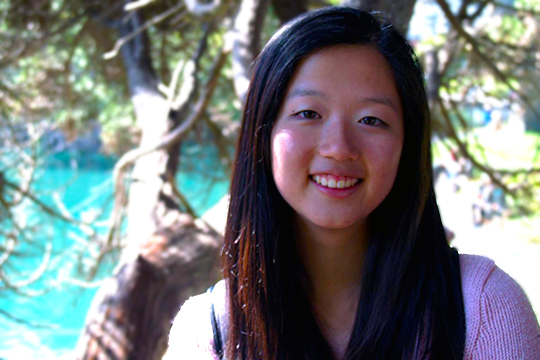
Wherever I was needed most
By Angela Li, ’17 (Biomedical Computation)
I first met Yvette* when I was assigned to be her interpreter during a routine appointment, and we talked for over an hour on our way out of the clinic. She opened up to me about her struggles with depression, and I listened as she shared her story: crippling loneliness as a recent immigrant, financial woes, an absent husband. We also connected over our shared love of Oaxaca, Mexico, her hometown, and at the end of our conversation, she was in better spirits, even a bit hopeful. As she thanked me profusely, I was delighted to see her genuinely smile for the first time that day.
As a Community Health Advocacy Fellow, I have had the privilege of getting to know people like Yvette while volunteering at MayView, a community health center that serves local low-income patients. During weekly shifts, I would help wherever I was needed most: as an interpreter, doing intake and vitals, or even comforting children as they were getting their blood drawn. In addition, I helped develop an online patient portal and customize it to the needs of MayView patients. This entailed not only applying the community health principles I had learned in the classroom, but also working with individual patients, teaching them how to use this tool and empowering them to proactively manage their health.
I look forward to caring and advocating for underserved patients in the future as a physician.
*Not her real name
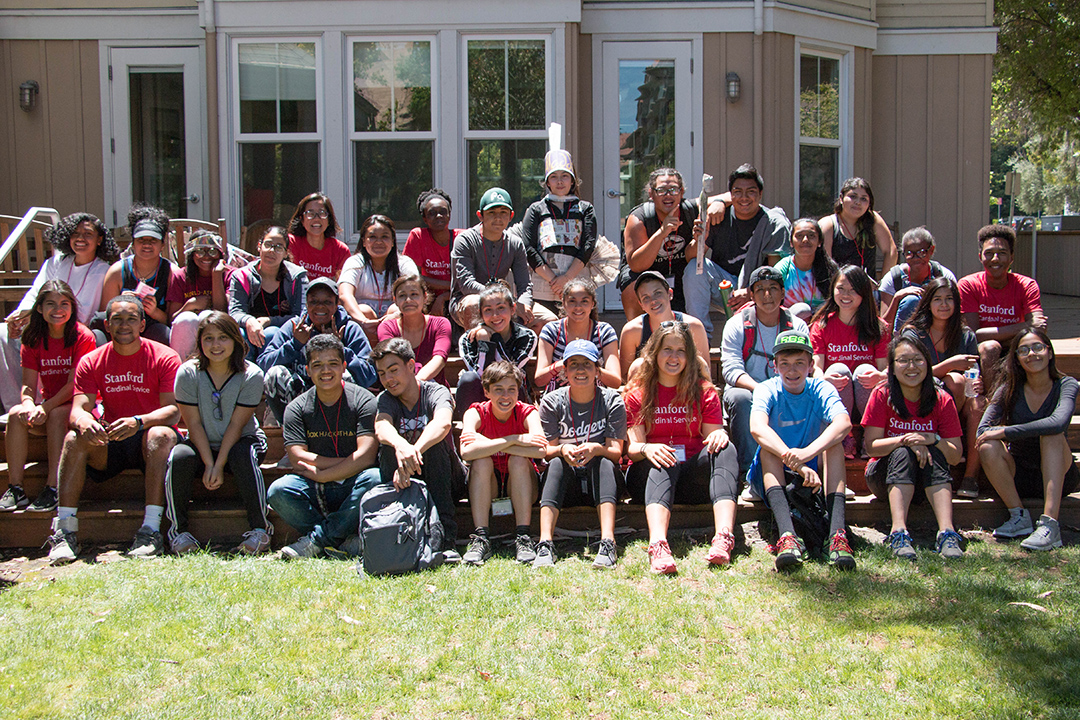
Summer Saturdays at Stanford
By Sophia Kim, program director for the High School Support Initiative at the Haas Center for Public Service
 The High School Support Initiative ran Summer Saturdays at Stanford, a new summer program for youth from the high schools that we are partnered with: Gunn, Menlo-Atherton, and Sequoia high schools. The youth served in the program are from marginalized communities locally and were identified by our partners to apply for the program. All together 27 youth participated with the support of 10 Stanford student volunteers. It was a wonderful four Saturdays of workshops on such topics as resume building and college preparation along with field trips kayaking in the Bay, to SF State, and to Huddart Park in Woodside.
The High School Support Initiative ran Summer Saturdays at Stanford, a new summer program for youth from the high schools that we are partnered with: Gunn, Menlo-Atherton, and Sequoia high schools. The youth served in the program are from marginalized communities locally and were identified by our partners to apply for the program. All together 27 youth participated with the support of 10 Stanford student volunteers. It was a wonderful four Saturdays of workshops on such topics as resume building and college preparation along with field trips kayaking in the Bay, to SF State, and to Huddart Park in Woodside.
Participants had positive feedback about the program, saying they learned a lot and valued getting to work with the Stanford students. We are planning follow up sessions during the school year to bring the youth and volunteers back together in more activities.
 Here are a few quotes from youth participants:
Here are a few quotes from youth participants:
- I really enjoyed this program, every single minute of it. This went by really fast but it definitely made this my favorite summer.
- I wanted to say this was an amazing opportunity to get to know the Stanford students! You guys are the best, you guys are truly amazing! Best wishes to the volunteers.
- I really appreciate what you guys did for us, paying for our food and providing us with your time. Thank you so much! I learned a lot!
- It was really good because it taught us a lot.
And a few quotes from Stanford student volunteers:
- I love doing volunteer work with children, outside of simply tutoring (which is important too!) Between this program and Kesem, I’ve found two great communities full of love and adventure, and have had one of the best summers.
- I didn’t realize how impactful a 4 weekend program could be. It was good that we were reasonable with how much could be done, but I also learned not to underestimate the importance of exposure to topics in college access. On the last day, I was surprised with how much the students took away from the program, especially during their mini open-mic speeches.
- I would wake up each Saturday dreading the early morning only to fall in love with the day.
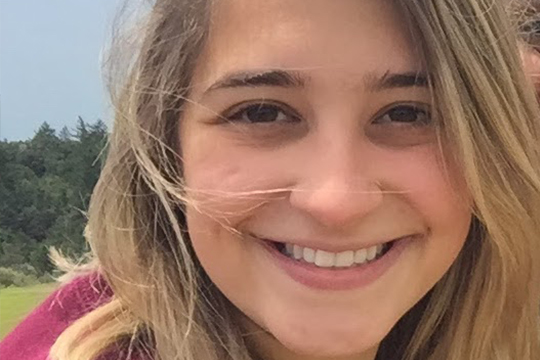
Capable
By Sophia Laurenzi, ’17 (Psychology)
At the end of the graduation lunch for the Hope House Scholars Program, a woman from Hope House thanked the teaching team for treating her without judgment and with the sense that she is capable.
Through tutoring at Hope House, a residential recovery program that women are often court-mandated to, and volunteering with The Last Mile, a start-up that teaches coding and professional skills to incarcerated individuals, I have worked with dozens of people who society sees as incapable–incapable of learning, of changing, of redemption. It has been the deepest joy of my time at Stanford to witness those involved with the criminal justice system shift from seeing themselves as incapable to capable.
The smallest moments can instill this confidence; learning a dance step in the Cardinal Service Dance in Prison course, writing a topic sentence, sharing a thought in a group discussion. These experiences have taught me that it is not ethical or even possible to try to “change” individuals in the criminal justice system. It is possible, and beautiful, to build relationships, environments, and skills that support others to tap into the universal human potential for change within themselves.
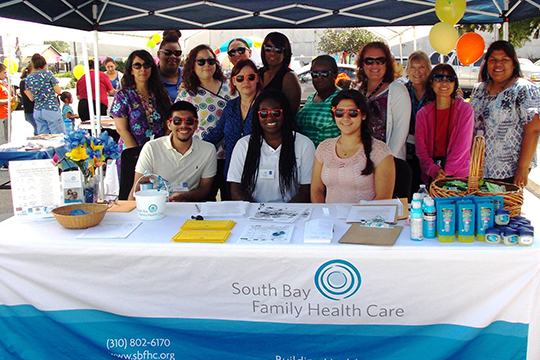
Health resources for families in need
By Miguel Ceniceros, ’19 (Human Biology)
As a woman got her blood pressure checked, her young daughter ran up to my table and smiled wide as she pointed at one of the coveted balloons we were handing out at South Bay Family Healthcare’s National Health Center Week Health Fair. I handed her one, and she ran to the next table to learn about the importance of brushing her teeth.
In the summer of 2016, I had the opportunity to volunteer with South Bay Family Health Center, engaging with community members and health providers. I learned about inequities in women’s and children’s health, and the efforts of health providers to bridge these gaps.
To say that South Bay Family Healthcare is just a health center is an egregious understatement. This organization, with its wonderful and dedicated staff, provides relief and resources to hundreds of families who would otherwise have little or no healthcare available to them. The caring staff taught about the value of teamwork, and the importance of advocating for those who need and ask for help. I am honored to have worked with an organization dedicated to the health and well being of the community.
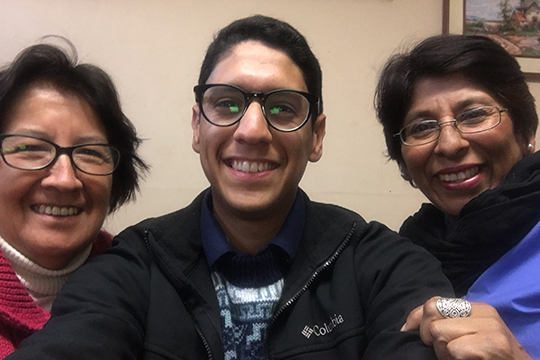
Research + community engagement
By Christopher Rodriguez, ’17 (Human Biology)
Pale wisps of steam flutter and twirl above the cup of tea on the table before me. The living room is narrow; the floor is rough, faded; the chairs feel like boulders. Sunlight scarcely saunters in through the window.
Beside me, Lilia Perez speaks in a soft cadence. She is the director of a branch of Samusocial Peru located in the secluded district of Ate-Vitarte, and my community partner. Lilia comforts a woman who holds back tears. She reminds me that most of these women are not normally granted the opportunity to disclose their abuse experiences.
This past summer, my goal was to better understand the resources that survivors of violence against women in suburban Peru find most useful to facilitating their social reintegration. The Public Service Scholars Program at Stanford has offered me the avenue through which to intersect scholarly research with community engagement.
Interviewing survivors of interpersonal violence was not easy. When they were not hesitant to share their stories, they delivered years of silent suffering in a flurry of crackling words. But as painful as it was to hear these stories, I do not forget how meaningful this research is.
The Public Service Scholars Program is a year-round program that supports students’ efforts to write a thesis that is academically rigorous as well as informed by and useful to specific community organizations or public interest constituencies.
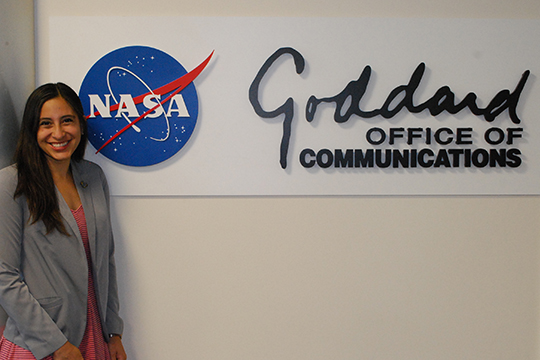
Engaging new audiences
By Patricia Flores, ’18 (Communication)
After my first day at NASA Goddard Space Flight Center in Greenbelt, Maryland, I felt like I was in way over my head. I wasn’t a STEM major, so how was I expected to write and create content about highly technical science information? Additionally, how could I approach my work through an angle that made me feel like I was making some sort of impact?
With the help of mentors and by not being afraid to ask questions—even ones that seem extremely basic—I discovered that I could find the way in which my work for NASA Goddard felt meaningful to me. Specifically, the projects I worked on to increase NASA’s Spanish outreach were very fulfilling. I had the opportunity to interview three amazing and incredibly intelligent Latinx engineers about their research and write feature-length profiles on each of them in Spanish. I translated outreach material, did voice-overs for mission videos, and crafted some tweets for our @NASA_es Twitter page. At the end of the summer, it was so rewarding to know that my work distilled very technical information on extremely relevant science topics to an audience that normally doesn’t engage in these spaces.
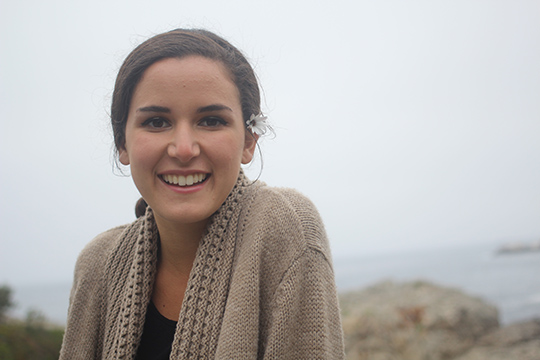
Words matter
By Marly Carlisle, ’17 (Political Science)
“People are homeless – they’re not ‘homeless people.’” Tod Lipka, the Executive Director of one of the largest homeless service providers in Los Angeles, said this at a panel I moderated titled “Abolishing Homelessness: It’s Not How, It’s When.” He was emphasizing the critical importance of highlighting a person’s humanity when speaking about homelessness. I think about homelessness on a daily basis – I wrote my thesis about it, I teach a course about it, and I serve on the board of directors of a homeless service provider. When discussing the issue of homelessness, it is easier to think about people who are homeless as abstract numbers and statistics, rather than considering their individual humanity. The mindful practice of saying “people who are homeless” instead of “homeless people” reemphasizes the individual experience of homelessness. It reminds me that “they” are “us,” but with different life circumstances. They are our neighbors, our community members, our fellow citizens. Us. I’ve moved away from “the homeless” and “homeless people,” opting for a more personal, human approach when discussing homelessness.
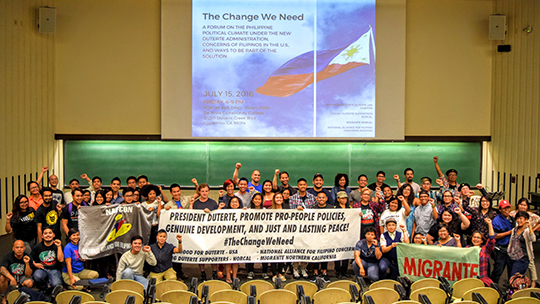
Becoming part of the neighborhood
By Ian Macato, ’19 (Symbolic Systems)
The Filipino Community Center in the Excelsior neighborhood of San Francisco serves to provide a safe space where Filipino families can access services, meet, and hold activities. The Excelsior neighborhood has the second highest population of Filipino/a people in San Francisco, and they are mostly low-income, working class immigrants. As true community members, we organize with partner grassroots organizations striving to fix the root causes of unemployment, unaffordable housing, and poverty in the neighborhood and in the Philippines. The center’s purpose is ordinary, helping community members to access government services and benefits. But serving as an intern at the FCC means to become a part of the Excelsior neighborhood and immerse oneself in the stories, experiences, and lives of the community members we serve. Through learning how to serve our kababayans (the Tagalog word for fellow compatriots), by helping them to get their much deserved government benefits, we also become their friends, counselors, and community members. We take part in their story and empathize with their struggle, knowing ours is interconnected.
